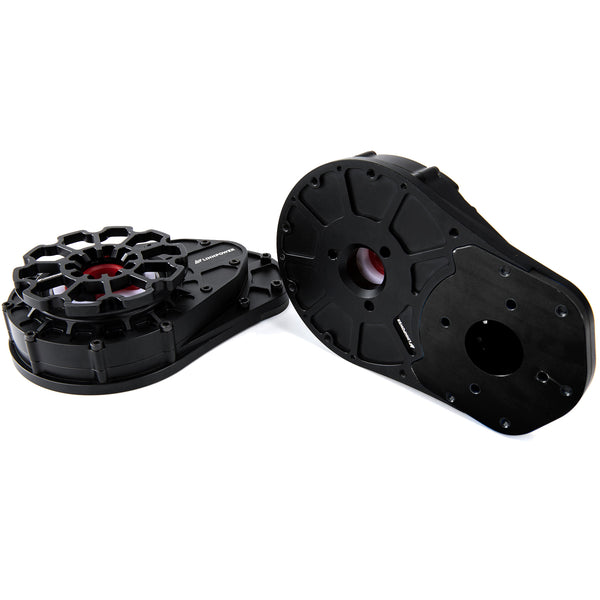Unlock the Secret to Choosing the Perfect Bearings for Your Electric Skateboard!
When it comes to electric skateboards, many riders focus on battery life, motor power, and deck design, often overlooking one of the most crucial components: the bearings. Bearings play a vital role in determining the overall performance and ride quality of an electric skateboard. They allow the wheels to spin smoothly, impacting speed, stability, and control. In this article, we'll guide you through the process of selecting the right bearings for your electric skateboard by exploring the various types available, the materials used in their construction, and the performance factors that can affect your ride. Whether you're a casual rider or a speed enthusiast, understanding bearings will enhance your skateboarding experience.

Understanding Electric Skateboard Bearings
Skateboard bearings are small, round components that fit inside the wheels of your electric skateboard, allowing them to rotate freely. Their primary function is to reduce friction between the wheel and the axle, which in turn enhances the skateboard's speed and maneuverability. The smoother the bearings, the less effort is needed to maintain speed, resulting in a more enjoyable ride. High-quality bearings can make a significant difference in performance; they provide stability during turns and help absorb vibrations from the road. I remember when a friend upgraded his bearings, he immediately noticed how much smoother and faster his rides became. It's astonishing how such a small component can have such a profound impact on the overall experience!
Types of Bearings Suitable for Electric Skateboards
When selecting bearings for your electric skateboard, you will come across several types, each with its own pros and cons. The most common types include standard skate bearings, ceramic bearings, and hybrid bearings. Standard skate bearings, usually made of steel, are the most affordable and widely used. They provide decent performance but can wear down faster if exposed to dirt and moisture. Ceramic bearings, on the other hand, are known for their durability and resistance to corrosion, making them ideal for riders who frequently skate in wet conditions. They’re also lighter, which can enhance speed but come with a higher price tag. Lastly, hybrid bearings combine steel and ceramic materials, offering a balance between performance and cost. They tend to provide better durability than standard bearings while being less expensive than full ceramic options. Each type has its unique benefits, so consider your riding style and environment when making your choice.
Materials Used in Bearings
The material of the bearings significantly affects their performance and longevity. The most common material is steel, known for its strength and affordability. However, steel bearings can rust and wear down faster, especially when exposed to moisture. Ceramic bearings are an excellent alternative; they are lightweight, resistant to corrosion, and can provide a smoother ride due to their lower friction coefficient. Nylon is another material sometimes used in bearings, especially for the cages that hold the ball bearings in place. While nylon can reduce weight, it may not be as durable as steel or ceramic. Choosing the right material depends on your priorities: if you value weight and speed, go for ceramic, but if you're looking for durability on a budget, steel may be the way to go. My friend who frequently rides in rainy conditions swears by ceramic bearings; they have held up much better than his previous steel ones.
Performance Factors to Consider
When choosing bearings, several performance factors are essential to consider. One key factor is the ABEC rating, which measures the precision of the bearing. A higher ABEC rating generally indicates better performance, but it’s not the only consideration. Additionally, the type of lubrication used in the bearings can affect performance. Some riders prefer grease for its long-lasting properties, while others opt for oil for a smoother, faster ride. Another important factor is the bearing's resistance to dirt and moisture; sealed bearings can help prevent contaminants from getting inside, prolonging their lifespan. Finally, consider your riding style and the conditions you’ll be facing. If you’re into tricks and aggressive riding, you might want bearings that can withstand impacts, while casual riders may prioritize a smooth and quiet ride. Personally, I recommend assessing your typical riding conditions and style before making a final decision.
Final Thoughts on Electric Skateboard Bearings
Choosing the right bearings for your electric skateboard is crucial in enhancing your riding experience. By understanding the different types, materials, and performance factors, you can make an informed choice that aligns with your riding style and conditions. Remember, investing in high-quality bearings can lead to a smoother, faster, and more enjoyable ride. Take the time to evaluate your needs and don’t hesitate to explore different options. With the right bearings, you’ll unlock the full potential of your electric skateboard, making every ride a thrilling adventure!








